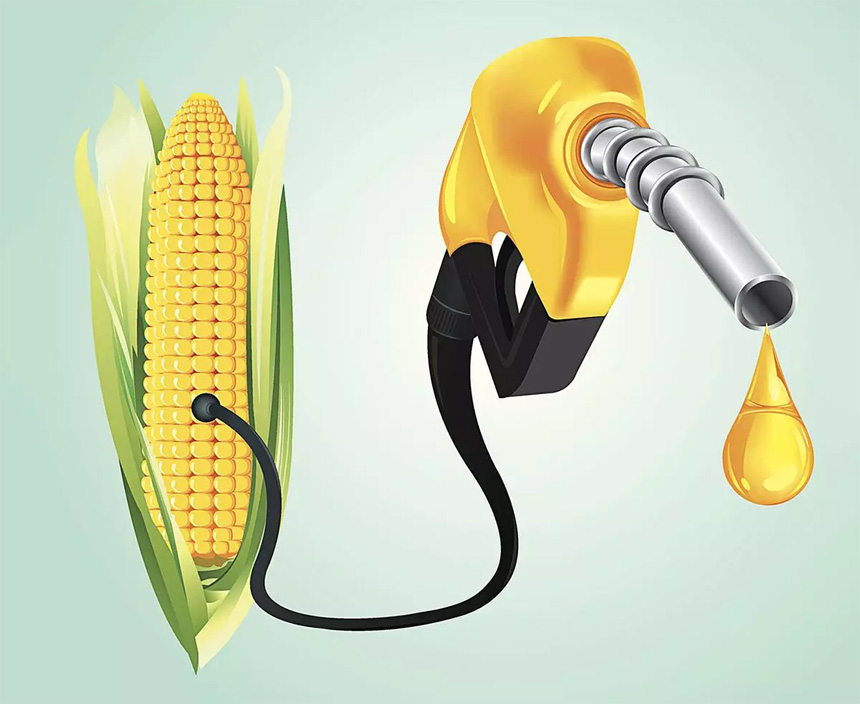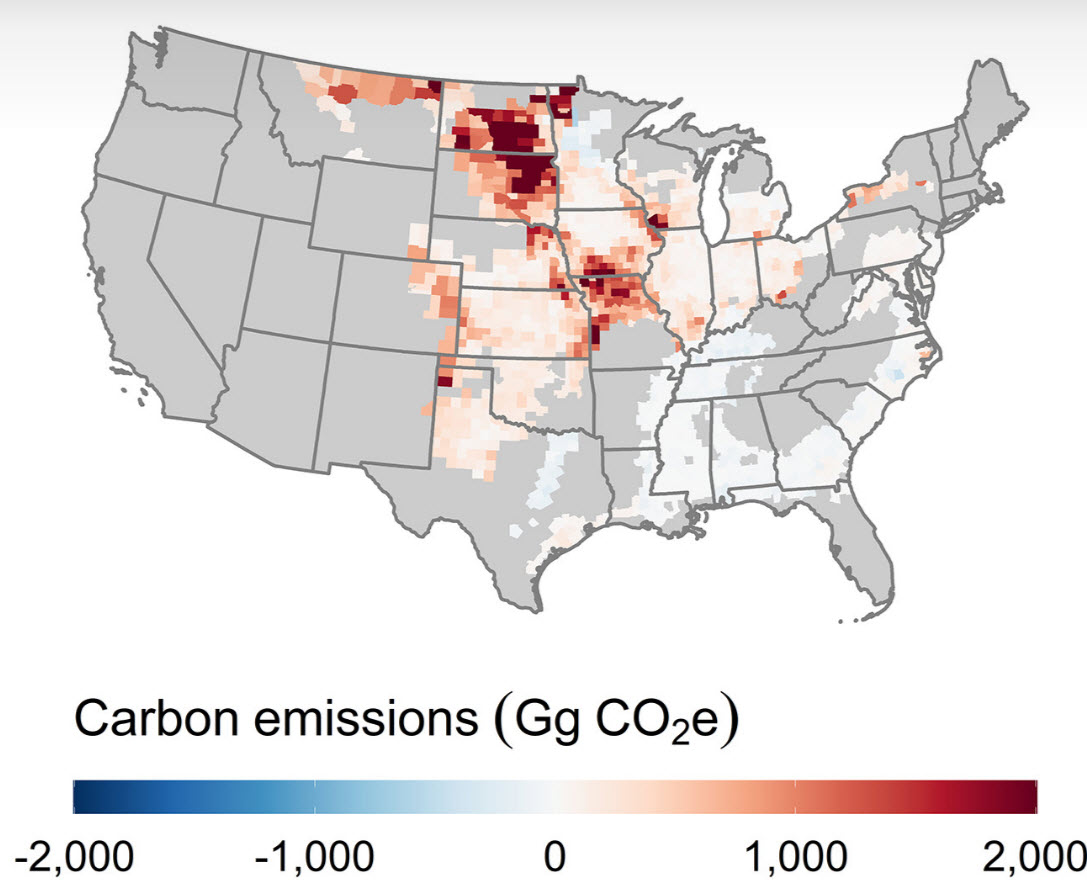Study Shows Corn Ethanol is Worse for the Environment than Gas
The Carbon Foundation – Published September 19th, 2023
The ethanol industry pays millions to lobby for its existence and from its very beginning it has been under scrutiny as a lie to the public. Since 2005, the U.S. federal government and midwestern states have been pushing corn ethanol biofuel mandates as a means to combat greenhouse gas emissions but the reality is corn ethanol is worse for the environment emitting at least 24 percent more carbon emissions than gasoline according to a study in the journal PNAS. In other words, the attempt to use ethanol to help the climate is actually accelerating climate change worse than fossil fuels directly — despite how emissions-heavy they are.
The study looks at ethanol’s footprint as a result of the Renewable Fuel Standard program that was enacted in 2005 as a part of the Energy Policy Act. What is the Renewable Fuel Standard Program? As the Environmental Protection Agency states, it is a program that was created with the aim of reducing greenhouse gas emissions which is clearly a failure.
“Congress created the renewable fuel standard (RFS) program to reduce greenhouse gas emissions and expand the nation’s renewable fuels sector while reducing reliance on imported oil.” – EPA
The study was published in The Proceedings of the National Academies of Sciences (PNAS) and looked and changes in corn farming, greenhouse gas emissions, fertilizer applications and runoff due to the RFS program. All of these areas saw substantial increases due to ethanol. For example, 1.8 million hectares of natural and semi-natural areas were converted to cropland between 2008 and 2016 to make more ethanol. Additionally, when looking at all US farming the RFS program drove a 7.5% increased use of synthetic nitrogen fertilizer and a 5% increase in nitrogen runoff.

A depiction of ethanol as a pump connected directly to corn, a food source.
Corn ethanol production contributes to several environmental problems and here in Iowa where the Carbon Foundation is based we see it first hand. In our waters and landscape. The Iowa landscape is the most changed by agriculture, 93 percent of our state has been transformed for agricultural purposes. Our water quality is some of the worst in the nation, our rivers and streams are filled with nitrogen runoff from farming, that runoff flows down the Mississippi river and into the Gulf of Mexico and is responsible for the second largest human caused ocean dead zone in the world.
Internationally one of the major problems of ethanol production is taking food and burning it. Half of the corn grown in Iowa is used to produce ethanol, that means that elsewhere in the world, natural areas are cleared to grow food to make up for the lost food production here. Also ethanol mandates drive up corn prices increasing costs for consumers.
“Even without considering likely international land use effects, we find that the production of corn-based ethanol in the United States has failed to meet the policy’s own greenhouse gas emissions targets and negatively affected water quality, the area of land used for conservation, and other ecosystem processes.”

This map from the PNAS study shows the geographical distribution of excess carbon emissions that are attributable to the RFS program.
We need a smarter solution to climate change than subsidizing a greenhouse gas emitting and water polluting policy. We can ensure that our farmers are able to do what they do and feed our nation without destroying our air land and water. Encouraging farmers to use portions of their land for wind and solar generation to fuel electric vehicles, as well as growing more cash crops and switchgrass for biofuel on land that is less productive can reduce our greenhouse gas emissions and make a healthier Iowa and world.
